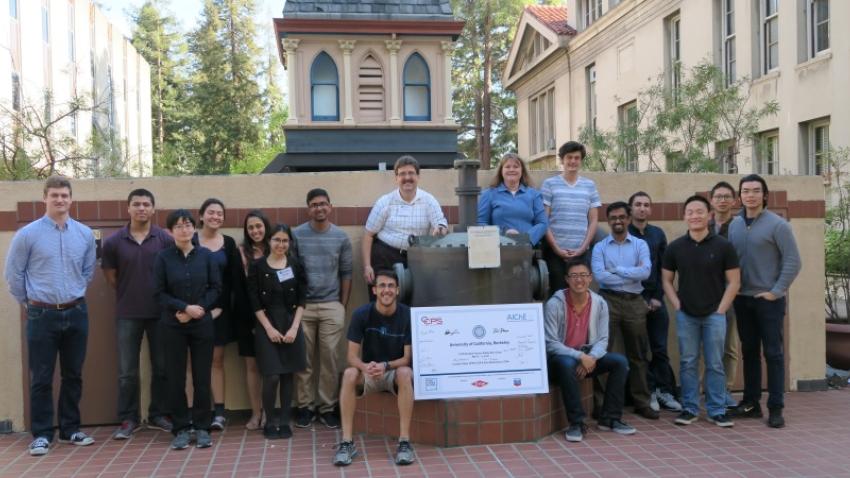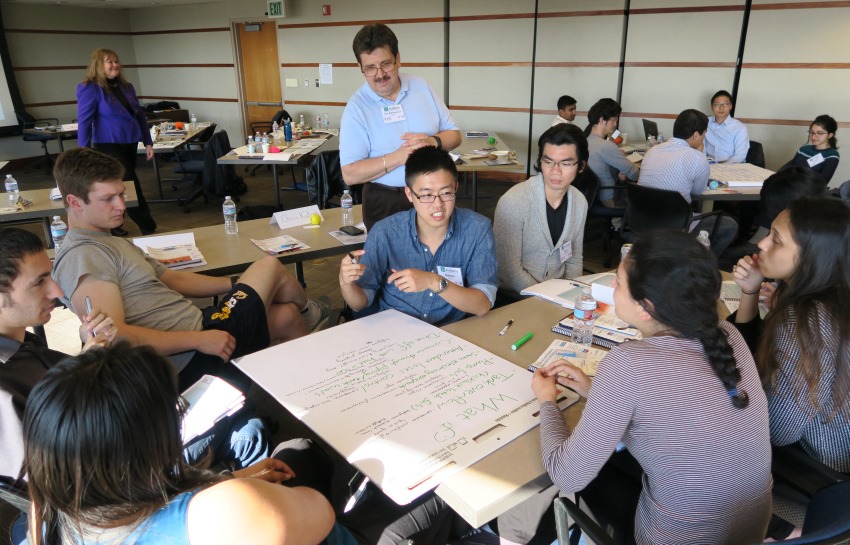
Educating the next generation of chemical engineers
AIChE and the Center for Chemical Process Safety, (CCPS) conducted a two-day Mini-Process Safety Boot Camp with chemical engineering students at the University of California, Berkeley on April 2-3, 2016. This 2-day course provided students with an overview of basic concepts in risk management systems and technical competencies required to prevent loss of containment of highly hazardous chemicals and materials.
The two instructors were Louisa A. Nara, CCPS Technical Director, and Don Abrahamson, CCPS Staff Consultant. The participants included undergraduate and graduate students in chemical, biochemical, materials, and mechanical engineering who hope to work in CPI process/plant design and manufacturing operations in the oil and gas/refining sectors, food manufacturing/storage, commodity chemicals and polymers, pharmaceuticals /nutraceutical, pulp and paper, or specialty chemicals sectors.
This exciting and invaluable opportunity was at no cost to the university and or Student Chapter. The Student Boot Camp was sponsored by the AIChE Foundation from gala funds raised in 2015 and early supporters of the “Doing a World of Good” campaign including Founders’ Circle members, The Dow Chemical Company (Dow) and Chevron. Engaging and educating students from around the world is part of a global effort to accelerate undergraduate process safety learning, a core priority of our Doing a World of Good campaign.
Below are some student experiences and feedback to the boot camps:
“This course allowed students to gain exposure to standard chemical process safety practices that we would not have otherwise gained until we entered industry.”
“I really enjoyed the course and the career experiences Don and Louisa shared because it drove in the reality and importance of safe engineering practice and provided insight into my career options.”
“The course, as an undergraduate in chemical engineering, really helped fill in my gaps in knowledge and gave me a qualitative introduction to chemical process safety that may be useful later in industry.”




